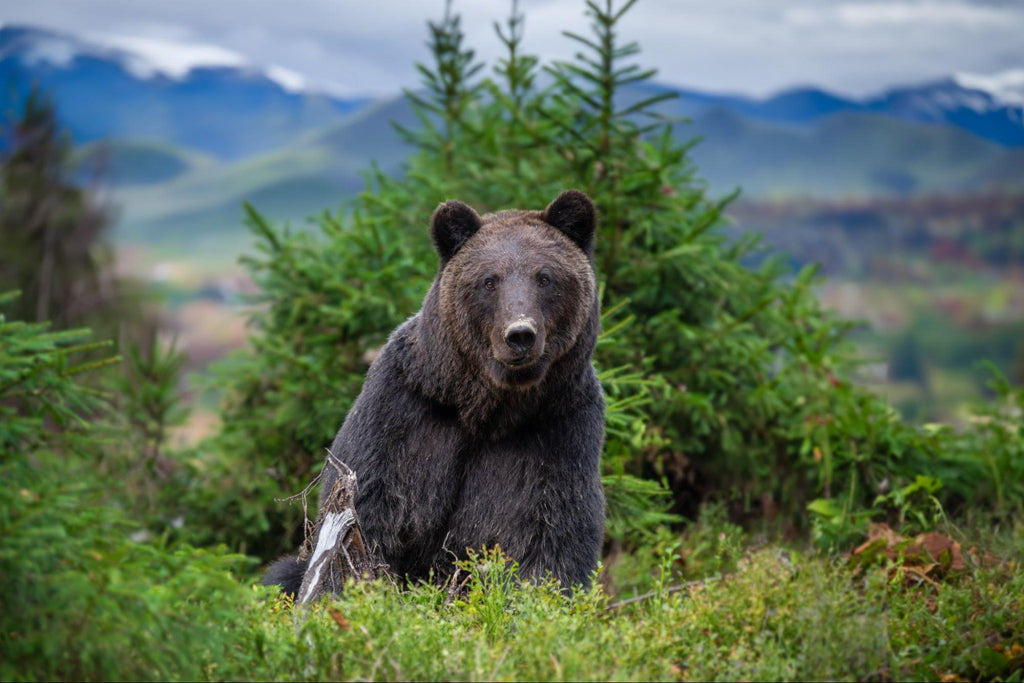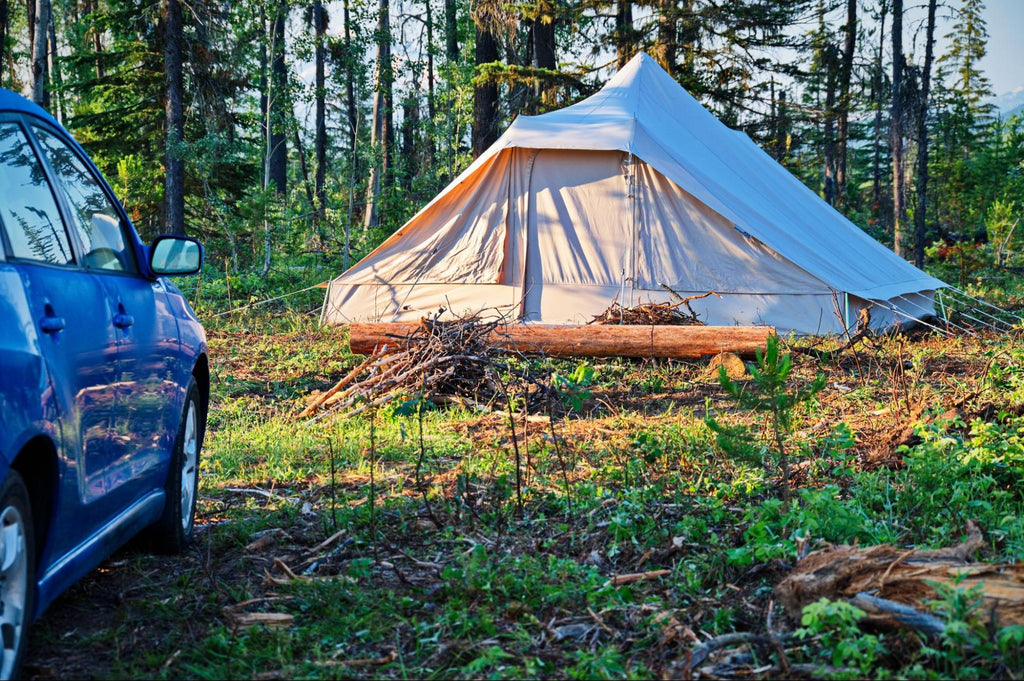Your Cart is Empty
Free Shipping Over $99
Free Shipping Over $99
Free Shipping Over $99

April 02, 2024 4 min read
When venturing into the wilderness for hunting or outdoor adventures, encountering wildlife is part of the experience. However, one encounter you want to avoid is stumbling upon a bear attracted to your campsite. Bears possess an incredible sense of smell that is2100x better than a human, and they are drawn to just about any food source. Making proper campsite management is essential for both your safety and the well-being of the bears. Whether you're a seasoned hunter or a camping enthusiast, bear-proofing your campsite is crucial. This article provides comprehensive tips to ensure your campsite remains safe from curious bears.

Before delving into bear-proofing techniques, it's essential to understand bear behavior. Bears are omnivores with an acute sense of smell, capable of detecting food from miles away. They are naturally curious and may investigate anything that could potentially be a food source. Therefore, it's imperative to eliminate all attractants from your campsite to prevent bear encounters.
Choosing the right location for your campsite can significantly reduce the likelihood of bear encounters. Look for designated camping areas with established fire rings and bear-proof food storage facilities. Avoid camping near areas with recent bear activity, such as signs of scat or overturned rocks. If that isn’t possible, be sure to select a site that offers good visibility to spot approaching wildlife.
One of the most critical aspects of bear-proofing your campsite is ensuring proper food storage. Bears have an exceptional sense of smell and can be attracted to even the smallest traces of food. Use bear-proof containers or bear-resistant food storage systems to store all food, garbage, and scented items, including toiletries and cooking utensils. Hang food bags at least 10 feet above the ground and 4 feet away from any tree trunk to prevent bears from reaching them.
Proper waste disposal is essential in Bear Country. Never leave food scraps or garbage lying around your campsite, as these can attract bears. Pack out all trash and leftover food, leaving no trace of your presence in the wilderness. If camping in a designated area with bear-proof trash receptacles, ensure all waste is securely sealed to prevent bears from accessing it.

Maintaining a clean campsite is vital for bear-proofing. Avoid cooking and eating near your tent, as food odors can linger and attract bears. Clean dishes immediately after use and dispose of any food scraps in sealed containers. Store cooking utensils and other scented items with your food storage to minimize odors.
While prevention is key, it's essential to be prepared for bear encounters. Carry bear deterrents such as bear spray or air horns and know how to use them effectively. Bear spray can deter an aggressive bear at close range, while air horns can startle and scare off curious bears from a distance. Additionally, make noise while hiking or moving around your campsite to alert bears of your presence and avoid surprising them.

For hunters and seasoned outdoor enthusiasts, integrating perimeter trip alarms into your campsite bear-proofing strategy can provide an extra layer of security and peace of mind. These tripwires are designed to emit a loud noise or deploy non-lethal deterrents when triggered, alerting you to the presence of wildlife, including bears, around your campsite. By setting up perimeter tripwires strategically around your camp, you can create a buffer zone that warns both you and nearby wildlife of each other's presence, reducing the risk of surprise encounters.

Above all, respect wildlife and follow all regulations regarding bear encounters in the area you're visiting. Observe wildlife from a safe distance and never approach or feed bears. Familiarize yourself with local regulations regarding food storage and bear-proofing requirements, and always comply with them to minimize human-bear conflicts.
Bear-proofing your campsite is essential for ensuring a safe and enjoyable outdoor experience. By understanding bear behavior, selecting appropriate campsites, properly storing food and waste, maintaining a clean campsite, using bear deterrents, and respecting wildlife and regulations, hunters and outdoor enthusiasts can minimize the risk of bear encounters and contribute to the conservation of these magnificent creatures. Remember, in bear country, prevention is always better than confrontation.
1. What are the most effective methods for bear-proofing a campsite?
The most effective methods for bear-proofing a campsite include proper food storage using bear-proof containers or hanging food bags, keeping a clean campsite free of food odors and garbage, using bear deterrents like bear spray or air horns, and setting up perimeter tripwires alarms for added security.
2. How can I safely store food and attractants to prevent bear encounters while camping?
Safely storing food and attractants involves using bear-proof containers or bear-resistant food storage systems to keep all food, garbage, and scented items secure and out of reach of bears. Additionally, hang food bags at least 10 feet above the ground and 4 feet away from any tree trunk, and avoid cooking or eating near your tent to minimize food odors.
3. What should I do if I encounter a bear at my campsite?
If you encounter a bear at your campsite, remain calm and do not run. Back away slowly while facing the bear and speaking in a calm, assertive voice. Avoid making sudden movements or startling the bear. If the bear approaches, use bear deterrents like bear spray or air horns to deter it, and seek shelter in a secure location such as a vehicle or sturdy building if available.
4. Are there any regulations or guidelines I need to follow for bear-proofing my campsite in different areas?
Yes, it's essential to familiarize yourself with local regulations and guidelines regarding bear-proofing campsites in the areas you plan to visit. These regulations may include requirements for food storage, use of bear-resistant containers, and restrictions on camping in certain areas with known bear activity. Always adhere to these regulations to minimize human-bear conflicts and ensure a safe outdoor experience for both humans and bears.
This website uses cookies to ensure you get the best experience on our website. Privacy Policy